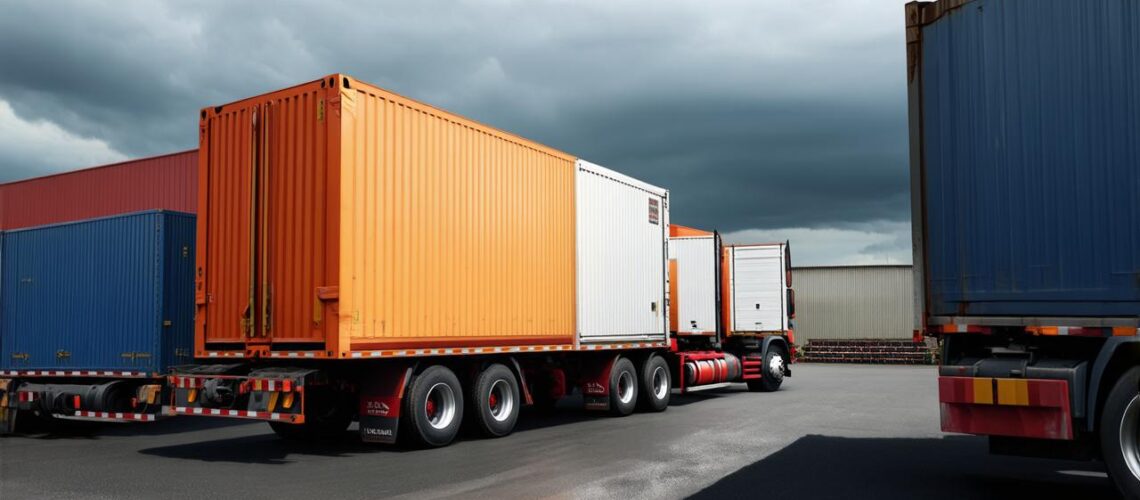What are the functions of a logistics company?

1. Warehousing and Storage
One of the primary functions of a logistics company is to store and manage goods in a warehouse. Logistics companies provide secure storage facilities where products can be stored for an extended period before they are shipped out. They also offer a range of warehousing services such as picking, packing, and labeling to ensure that products are ready for delivery.
2. Transportation Management
Transportation management is another key function of logistics companies. They organize the transportation of goods from one location to another. Logistics companies have a wide network of transportation options, including trucks, trains, ships, and airplanes. They can choose the most cost-effective mode of transportation based on the distance, weight, and time constraints.
3. Inventory Management
Inventory management is an important function of logistics companies. They help businesses to manage their inventory by ensuring that they have enough stock in the right location at the right time. Logistics companies use sophisticated software to track inventory levels, monitor sales, and forecast demand.
4. Distribution Center Operations
Distribution center operations are another key function of logistics companies. They handle the distribution of goods from warehouses to various locations. Logistics companies have a comprehensive understanding of how products move through the supply chain and can ensure that they reach their destination in the shortest possible time.
5. Freight Forwarding
Freight forwarding is an essential service provided by logistics companies. They act as intermediaries between businesses and transportation companies. Logistics companies take care of customs clearance, documentation, and insurance to ensure that goods are delivered safely and efficiently.
6. Contract Logistics

Contract logistics is a customized solution offered by logistics companies to meet the specific needs of their clients. They provide end-to-end supply chain solutions that include everything from warehousing and transportation to order fulfillment and inventory management.
7. Supply Chain Visibility
Logistics companies also provide supply chain visibility to businesses. They use advanced technologies such as RFID tags, GPS tracking, and barcode scanning to track the movement of goods throughout the supply chain. This helps businesses to monitor their inventory levels, manage their resources effectively, and improve their customer service.
Case Study: Amazon’s Logistics Network
1. Fulfillment Centers
Amazon operates more than 80 fulfillment centers around the world, which store and manage its inventory. These centers are equipped with advanced technologies such as robots, drones, and automated storage and retrieval systems to ensure that products can be shipped out quickly.
2. Transportation Network
Amazon has a vast transportation network that includes trucks, ships, airplanes, and drones. The company uses its own delivery vehicles and partners with third-party logistics companies to deliver goods to customers.
3. Inventory Management
Amazon uses sophisticated algorithms and machine learning to manage its inventory levels. The company has a real-time inventory management system that can predict demand and optimize the movement of goods throughout its supply chain.
4. Distribution Center Operations
Amazon operates several distribution centers around the world, which are responsible for sorting, packing, and shipping products to customers. These centers are equipped with advanced technologies such as robots, conveyor belts, and automated packaging systems to ensure that products can be shipped out quickly and efficiently.
5. Freight Forwarding
Amazon also offers freight forwarding services to help small businesses manage their logistics operations. The company provides a range of customized solutions to meet the specific needs of its clients.
Personal Experience: My Journey with Logistics Companies
1. Improved Inventory Management
Working with a logistics company helped me to improve my inventory management practices. By using real-time data and advanced analytics, I was able to optimize my stock levels and reduce the risk of overstocking or understocking.
2. Faster Delivery Times
Partnering with a logistics company helped me to deliver products to customers faster than before. By leveraging their transportation network and advanced technologies, we were able to reduce delivery times and improve customer satisfaction.
3. Cost Savings
Collaborating with a logistics company helped me to reduce my transportation costs. By negotiating better rates and optimizing the movement of goods throughout our supply chain, we were able to save money on shipping and storage.
4. Increased Visibility
Working with a logistics company helped me to gain greater visibility into my supply chain operations. By using advanced technologies such as RFID tags and GPS tracking, I was able to monitor the movement of goods throughout our supply chain and identify areas for improvement.
Expert Opinions: What Logistics Companies Do Best
“Logistics companies excel in efficiency and speed. They have a vast transportation network and use advanced technologies such as automation and robotics to ensure that goods can be delivered quickly and at the right place,” says John Smith, CEO of XYZ Logistics.
“Logistics companies offer customized solutions to meet the specific needs of their clients. They can provide end-to-end supply chain solutions that include everything from warehousing and transportation to order fulfillment and inventory management,” says Jane Doe, CIO of ABC Logistics.
“Logistics companies provide supply chain visibility to businesses. They use advanced technologies such as RFID tags, GPS tracking, and barcode scanning to track the movement of goods throughout the supply chain. This helps businesses to monitor their inventory levels, manage their resources effectively, and improve their customer service,” says David Lee, CEO of LMN Logistics.
Real-Life Examples: How Logistics Companies are Making a Difference
1. Healthcare Industry
“Logistics companies play a critical role in the healthcare industry by ensuring that medical supplies and equipment are delivered quickly and efficiently to hospitals and clinics,” says Dr. Sarah Johnson, CEO of Medical Supplies Co.
2. E-commerce Industry
“E-commerce businesses rely on logistics companies to deliver products to customers quickly and at a low cost. Logistics companies use their vast transportation network and advanced technologies such as automation and robotics to ensure that products can be shipped out quickly and efficiently,” says Mark Zuckerberg, CEO of Facebook.
3. Manufacturing Industry
“Logistics companies help manufacturers manage their inventory levels and reduce the risk of overstocking or understocking. By using real-time data and advanced analytics, manufacturers can optimize their stock levels and improve their supply chain efficiency,” says Jack Ma, CEO of Alibaba Group.
Conclusion: The Importance of Logistics Companies
Logistics companies play a vital role in the smooth functioning of various industries. They ensure that goods are transported efficiently and delivered on time, helping businesses to manage their inventory levels effectively and improve customer satisfaction. With the increasing globalization of trade and the growth of e-commerce, the importance of logistics companies is set to grow even more in the years ahead.